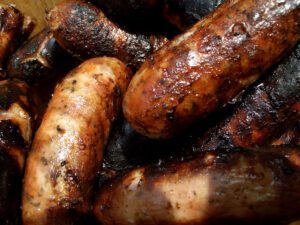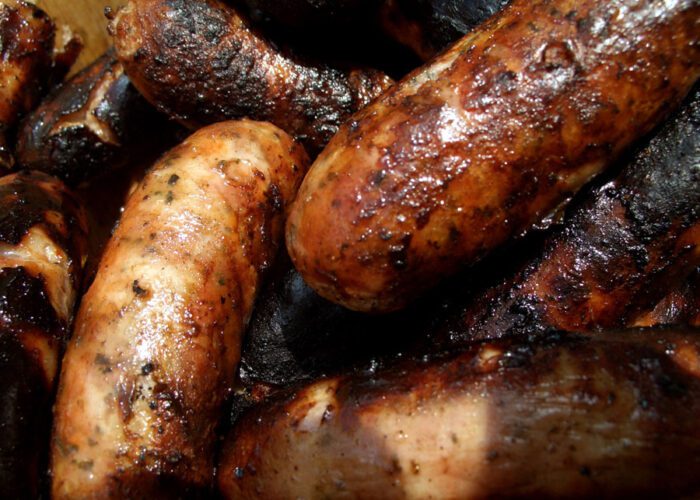
A controversial report linking red meat and processed meat to cancer has been branded “scaremongering” by one local butcher, with others sceptical about the likely impact on food shoppers.
The report by the World Health Organisation said there was enough evidence to rank processed red meats, such as sausages, as group 1 carcinogens – the same group as smoking and asbestos – because of a causal link with bowel cancer.
It also put red meat in group 2A as “probably carcinogenic”, based on limited evidence, because of its link to pancreatic and prostate cancer.
As the announcement dominated the news headlines on Monday, we spoke to Merseyside butchers to assess whether they feel the WHO verdict could have a damaging impact on trade.
Dave Houston of Eagle Foods in Huyton told JMU Journalism: “It’s just scaremongering. It’s always negative with the press. Anything to sell a newspaper. You see it with everything; mad cow disease, E.coli, chickens and eggs salmonella – it’s always negative.
“They never talk about the benefits. I’m a firm believer that fresh is best. There’s no additives or preservatives in them like you see in all these other foods.”
The study was undertaken by a working group of 22 experts from 10 countries for the International Agency for Research on Cancer and it concluded that each 50 gram portion of processed meat eaten daily increases the risk of colorectal (bowel) cancer by 18%.
Brian Horton of Horton’s Family Butchers in Walton told JMU Journalism: “Obviously it [the report] could frighten a lot of people away but we’re in the inner city… it’s not a green belt area. There are people on benefits and they have to shop within their budgets and maybe they can’t afford better cuts of meat, so have to get processed meat.
“Everything is bad for you but if we all listened to what they say [newspapers] we wouldn’t be eating anything at all, would we?”
Red meats are a source of vitamin B, D, and also contain iron and zinc. They are described in the study as beef, veal, pork, lamb, mutton, horse, and goat, whilst processed meats include sausages, hot dogs and salami.
The Department of Health advises people to reduce their red meat intake to 70 grams a day, which is less than two slices of bacon.
Phil Niblock, of PJ Niblock butchers in Hunts Cross, told JMU Journalism: “If you have 10 bacon butties every day, it’s not good, but it’s the same with anything. If you have 10 pints every day, you’d die – it’s about balance.
“Two or three weeks and things get back to normal. I don’t want people to ignore them [the reports] because it’s not nice to get anything like that [cancer] but they’ve got to make their own minds up.”

